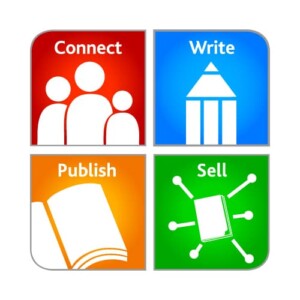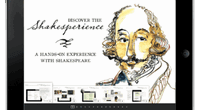
Last week, GoodeReader reported on some concerns from librarians and patrons surrounding the surge in ebook lending from libraries, including a UK initiative to potentially make ebook lending a government mandate. The concerns raised by some parties are that the ease of ebook borrowing to handheld devices will have a dramatic impact on libraries, specifically in a massive reduction of the numbers of patrons who need to actually go to their local community libraries.
But a new digital publishing partnership from FastPencil and Auto-Graphics could add another dimension of importance and usability for libraries. FastPencil’s digital publishing platform isn’t new, but working with Auto-Graphics, a leading supplier of library-specific technologies, in order to bring their publishing engine to libraries is a digital model that allows libraries to meet yet another need within their communities.
“The construction of books for would-be authors means they want to go to a trusted source, which is the library, and utilize the resources of the library which may not be available to them in traditional publishing realms…the path to success on this [partnership] is an absolute seamless functionality from the utility that we provide in our systems and the utility that FastPencil has created.” said Robert Brown, Executive Vice President of Auto-Graphics, in an interview with GoodeReader.
So what benefits does FastPencil offer that other platforms don’t, especially when so many writers struggle to overcome the stumbling blocks to completing their books?
“It’s the ability to stay on one site, end-to-end,” continued the company’s CEO, Steve Wilson. “That will be further simplified on the library platform. With a few clicks you can change your content automatically to an ebook or a print-ready document and then ultimately push to publish and distribute. We essentially enable the platform and the design so that authors can focus just on content and finishing the book.”
One of the key advantages to this new model will be the symbiotic relationship this can foster between the authors and the libraries. Writers are invited to come to the member libraries to actually write their content and can benefit from the expertise of the library staff for the process of writing and digitally publishing their work; at the same time, libraries stand to gain from increased patron use and attendance, as well as the furthering of the culture of public libraries. Additionally, the library platform will afford users the opportunity to create their print-ready books via any existing on-site book kiosks like the Espresso Book Machine.
The platform established by FastPencil and Auto-Graphics will also include several strategic partnerships at the state level with as many as ten or more different entities. These key partnerships will be announced later this fall.
Mercy Pilkington is a Senior Editor for Good e-Reader. She is also the CEO and founder of a hybrid publishing and consulting company.
